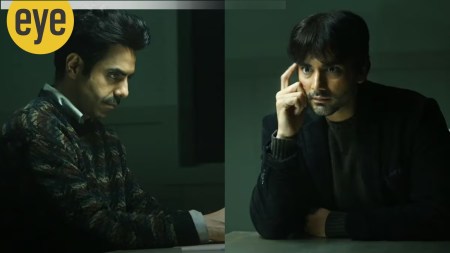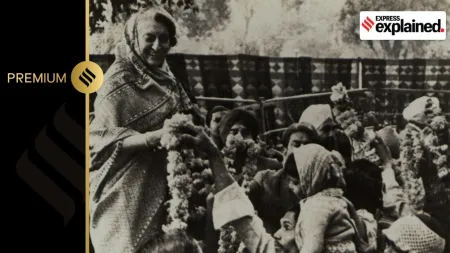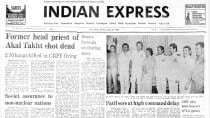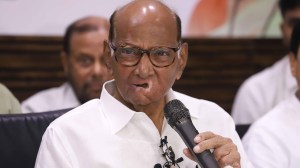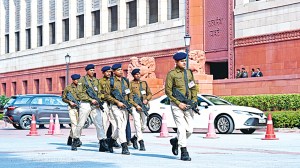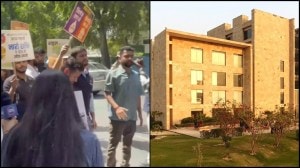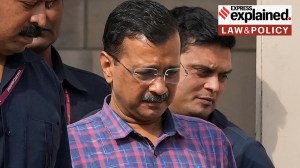- India
- International
It is unjust that refusal of bail to Sudha Bharadwaj is based on inadmissible evidence
The observation of the Court in Bharadwaj’s case that the decision as to whether a document is admissible in evidence or not will have to wait for the trial stage is unbelievable. Courts routinely exclude inadmissible documents or statements (such as hearsay) from consideration while deciding bail applications.
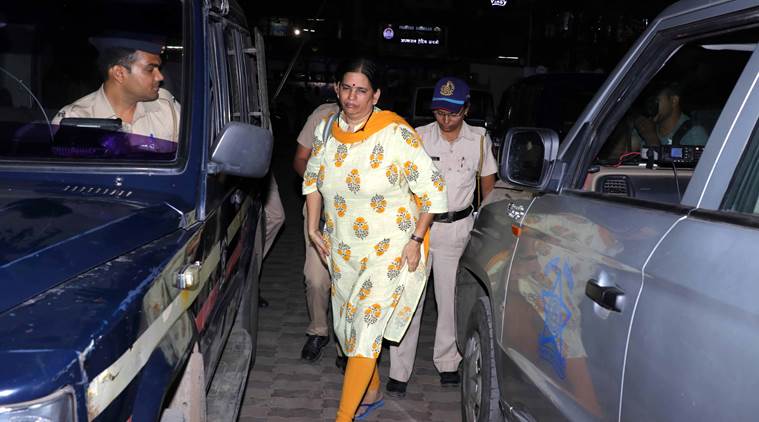 Like Sudha Bharadwaj, professor of Law at the National Law University Delhi, there are several leftist comrades in jail today whose only crime is that they fearlessly opposed governments in courts while defending their clients. (Express Photo By Ashish Kale/File)
Like Sudha Bharadwaj, professor of Law at the National Law University Delhi, there are several leftist comrades in jail today whose only crime is that they fearlessly opposed governments in courts while defending their clients. (Express Photo By Ashish Kale/File)
Sudha Bharadwaj, professor of Law at the National Law University Delhi, a former member of the Chhattisgarh State Legal Services Authority and founder of the democratic rights organisation — Janhit — has been in jail for two years following the rejection of her bail application. The high court order followed a recent two-judge bench Supreme Court decision in Zahoor Watali’s case, where the Court held that bail under section 43D(5) of the Unlawful Activities Prevention Act (UAPA) can be denied by relying upon prosecution documents even though they would be inadmissible in evidence during the trial. Such a judgment is unprecedented and has draconian consequences. Like Bharadwaj, there are several leftist comrades in jail today whose only crime is that they fearlessly opposed governments in courts while defending their clients.
Yug Chaudhary, who brilliantly defends Bharadwaj in the Court, pointed out that the only evidence against her was letters and documents recovered from other accused. Nothing objectionable was recovered from her or her devices. No witness statements were recorded by the police. None of the documents was signed by any of the accused persons. The authorship is not known. They do not bear any date. If produced in court during the trial, they would not be accepted as admissible evidence. The investigation is over and this is all that the police have. Meanwhile, Bharadwaj has developed osteoarthritis and is in great pain. She lost her father while in custody and is the sole guardian of her young daughter.
The decision in the Watali case runs contrary to a long line of decisions of the Supreme Court to the effect that any order regarding bail must be based only on documents that are admissible as evidence during the trial (take Dipakbhai v state of Gujarat). In Naidu and Veena, unsigned documents were left out of consideration. Documents, whose authorship could not be determined, were similarly left out. Only perusing such legally-admissible evidence, will the court, using the probability test, grant bail if satisfied that in all probability the accused would not be ultimately convicted (Ranjitsing, Vasanthi).
In not a single decision of the Supreme Court is it laid down that documents inadmissible as evidence can be relied upon by courts to deny bail. This is a heretical proposition in criminal jurisprudence articulated thus “the question of discarding the document at this stage on the ground of being admissible in evidence is not permissible. The Court must look at the contents of the documents and take such documents into account as it is.” Therefore, according to the Supreme Court, bail can be denied by looking at police evidence that would not be admissible during the trial under criminal law. It is an understatement to say that this judgement undermines the purity of criminal jurisprudence. It deserves to be set aside by a larger bench.
The observation of the Court in Bharadwaj’s case that the decision as to whether a document is admissible in evidence or not will have to wait for the trial stage is unbelievable. Courts routinely exclude inadmissible documents or statements (such as hearsay) from consideration while deciding bail applications. The dicta of Watali is that even patently inadmissible documents can be relied on by the police and courts to deny bail by leaving the accused in a situation where years will pass before her ultimate acquittal. One must remember that in the present situation of police propaganda against so-called “terrorists” who expose the government’s criminal conduct, the purpose of prosecution is not to get a conviction ultimately, for the police themselves know that legal evidence is lacking, but to keep the accused as long as possible behind bars. Decisions like the Watali judgment fit well with the police strategies to isolate and incarcerate social activists contrary to law.

This article first appeared in the print edition on July 20 under the title “Isolating The Dissenter.” The writer is a senior advocate, Supreme Court of India, and founder-director of Human Rights Law Network.
EXPRESS OPINION
More Explained
May 11: Latest News
- 01
- 02
- 03
- 04
- 05


